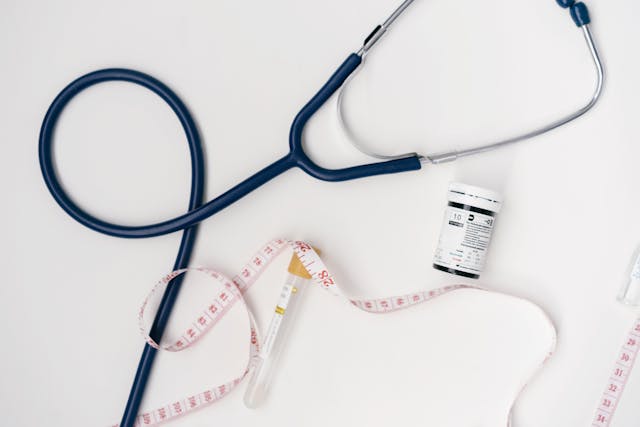No products in the cart.
The Essential Guide to Pre-Employment Medical Exams in Australia

When starting a new job, most people think about updating their CV, nailing the interview, or ironing their best shirt. But what about pre-employment medical? For many Australian roles—especially in industries like mining, construction, healthcare, and logistics—this health check is more than just a formality. It’s a crucial step in ensuring workplace safety, matching the right people to the right roles, and reducing long-term health risks for both employees and employers.
If you’ve never done one before, or if you’re an employer wondering what exactly is checked, this guide is your go-to resource. We’ll walk through what a pre-employment medical involves, who needs it, and why it matters more than you might think.
What is a Pre-Employment Medical Examination?
Pre-employment medical entails a check-up conducted before an individual commences a new job. It helps determine whether the individual is capable of performing the required activities physically, intellectually, and emotionally.
It is not an issue of discrimination and exclusion of persons; it is now to ensure that new employees can perform their duties without exposing themselves and others to injury. As per the Work Health and Safety Act 2011, employers are mandated by law to ensure their work environment is safe; this begins with the employment of employees who are fit to work.
What is the Importance of Pre Employment Medicals?
To make it short: safety, productivity, and long-term well-being.
- To Employers: These checks minimise the chances of occupational accidents, sick days, or compensation payments resulting from pre-existing or untreated health conditions.
- To employees: It is essential to ensure you are not in a position to exacerbate a health problem or incur an unnecessary physical burden.
Pre-employment medicals assess whether an individual is fit to work and whether they are medically unfit. Even a person with a chronic illness such as asthma may pass as long as the work does not expose such a person to greater risk.
What is a Pre-Employment Medical Examination?
Doctors perform a pre-employment medical check-up before you start a new job. This exam confirms you can physically, mentally, and emotionally handle the job’s demands.
Employers use these checks to ensure new hires work safely without risking injury to themselves or others. The Work Health and Safety Act 2011 requires employers to maintain a safe workplace, starting with fit employees.
Why Pre-Employment Medicals Matter
In short: they boost safety, productivity, and long-term health.
For Employers: These exams reduce workplace accidents, sick leave, and compensation claims from pre-existing health issues.
For Employees: They ensure the job won’t worsen your health or cause unnecessary strain.
Even with conditions like asthma, you may pass if the job doesn’t increase your health risks.
What Does a Pre-Employment Medical Include?
The exam varies by industry, job demands, and employer needs, but typically includes:
-
Medical History Questionnaire: You provide details on past and current health, surgeries, medications, allergies, and lifestyle habits (e.g., smoking, alcohol). Be honest—hiding details can cause problems later.
-
Physical Examination: A doctor checks:
-
Height, weight, and Body Mass Index (BMI).
-
Blood pressure and pulse.
-
Heart, lungs, abdomen, and nervous system.
-
Vision (acuity, peripheral, color perception).
-
Hearing (audiometry), vital for noisy work environments.
-
-
Musculoskeletal Assessment: For jobs involving manual labor, lifting, or repetitive motions, a doctor or therapist evaluates your strength, flexibility, and range of motion to spot potential injuries.
-
Urinalysis: A urine test checks for kidney issues or diabetes (sugar in urine).
-
Drug and Alcohol Screening (DAS): Common in safety-critical jobs, this tests urine or saliva for illegal substances or alcohol.
-
Functional Capacity Evaluation (FCE): For physically demanding roles, you perform tasks like lifting or bending to assess your abilities and limitations.
-
Psychological Assessment: For high-stress or trauma-exposed roles, this evaluates your mental resilience and well-being.
The Procedure: What to Expect
After a conditional job offer, you’ll schedule a medical exam with a designated healthcare provider. On the day:
-
Bring valid photo ID.
-
Carry any prescription medications.
-
Wear comfortable clothing for functional tests.
-
Follow instructions, like avoiding loud noises before a hearing test or fasting for blood work.
-
Speak openly with medical staff.
The employer receives a report on your job suitability, which they use, alongside other factors, to finalize hiring.
Conclusion: A Key Step for Safety
Pre-employment medicals may feel like a hurdle, but they protect everyone. They help employers build safe, capable teams and give workers confidence their job suits their physical and mental health. In Australia, where safety and inclusion matter, these exams create fair, thriving workplaces.

















Leave a Reply